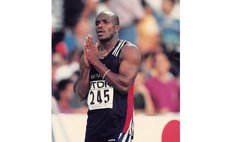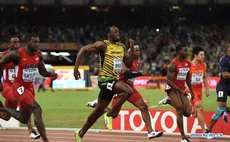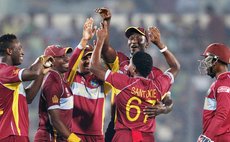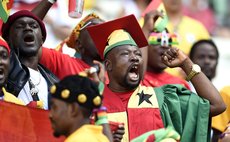Football Ambition Needs Sterner Stuff
From my reckoning, the Dominica Football Association was allowing six weeks to prepare a national youth team for participation in a regional tournament. If that is the case, the association must have wonderful belief in the effectiveness of the work being done by the various football academies around the island. I have tried to weigh the matter and ask: do the association's technical officers know what the academies are doing? Even more pointedly, are the technical officers telling the academies in what direction they need to go with their methods of tuition so that a required focus be achieved towards sustainable national development of our football?
My first hurdle to be crossed is from those whose primary argument rests on "the game should be fun." Agreed, but it ought to be greater fun when success attends the effort of engagement. Being "born to lose" cannot be too pleasant an inheritance. We should seek a more palatable reason for existence in the sporting world. Never should we accept our fate as the inevitable outcome of a blind, random lottery.
A reasonable assumption suggests that young footballers are willing to be guided along duly ambitious lines of training by the time they are twelve years old. All this takes into account that the Under 15 squad would contain some players who are about 12 years old. Similarly, the Under 17 group would feature a few who are Under 15. So also the Under 20 should have a sprinkling of those who are talented from the Under 17 and Under 15 age groupings etc.
Why not? Pele played in a professional line-up at 15. And when the team psychologist appraised him as too juvenile the coach, when asked for his views, said very simply the psychologist needs being replaced. Of course, Pele played for Brazil in the first World Cup won by that country at the age of 17 in 1958, scoring in the final.
Not that every youngster is a potential Pele. But each should be given the chance to reach the maximum of his or her potential, and that means taking a sensible view of training methods and procedures.
Within reason, at the tender age of 12 our youngsters should be afforded three training days per week—sessions varying between one hour and one and a half hours. The content of these sessions may be weighed in favour of skills and technique. However, it would be quite a mistake to ignore the element of physical training.
To a large extent the physical work component in itself may largely include the ball as an attractant. Yet, it is important to realize that skill in itself benefits heavily from elevated physical conditioning.
The boys of my era used to engage in a procedure most people would nowadays regard as bizarre. We had no coach. Our motivation was simply a desire to be active in the game. So when we had only as few as eight players on hand, we would pair off, with one pair acting as goal keeper while the other pairs struggled to score—not one, not two, but three goals in order to replace the pair who were in goal. Talk about work! Your legs were on fire! It meant a continuous effort of two against four all the time to score three goals and against two goal keepers in goal!
When you played that sort of stuff the real match was simply a holiday of sorts. In the official match you had time to think and "double think" against opponents not trained within our commando type medium.
Alas, one of our young players some years ago—in the more modern era—had the supreme blessing to be granted an attachment to a professional European club, only to opt out because of the work load he said was too onerous! Would he had had some of our life with two goalkeepers! He would have breezed through with flying colours. The old Creole saying rings true: "sa ke pa tini dent ti ni moisset!" Crudely translated, it is the ones without teeth who get the hard nuts (to eat)!
Let's not dwell only on the general premise for development of youth in our football. What about the specifics in regard to the elite performers as they appear in our midst? How do you bring along the dynamic sprinter like Joffrey (Scobie) Lawrence, or the super dribbler like Robertson (Cokoshoo) Hypolite or the master midfielder like Irvin (Spraggs) Benoit? Indeed, you must make time for them. They have their very special needs if they are to blossom forth as the shining stars they can become. What's more, the requirement of having coaches who are sensible and sympathetic to the emergence of genius must be realized and given a degree of prominence.
In all this we may not ignore the need to take into consideration the academic well being of our youth players. Too often the tendency is to bracket sporting talent with a non-academic bent. This is a present day oddity. In the old days when opportunities in football were largely non-existent the best players included your best academics. On the other hand, today when large financial possibilities have become available in the sport, our academics simply are uninterested or our education authorities are without the enabling vision that could stir attainment in the right direction. Our football coaches should see themselves as agents for change. It, according to the popular Calypso, is a phenomenon. But not one which simply comes about. It must be worked for relentlessly and with the right and sober mentality.




